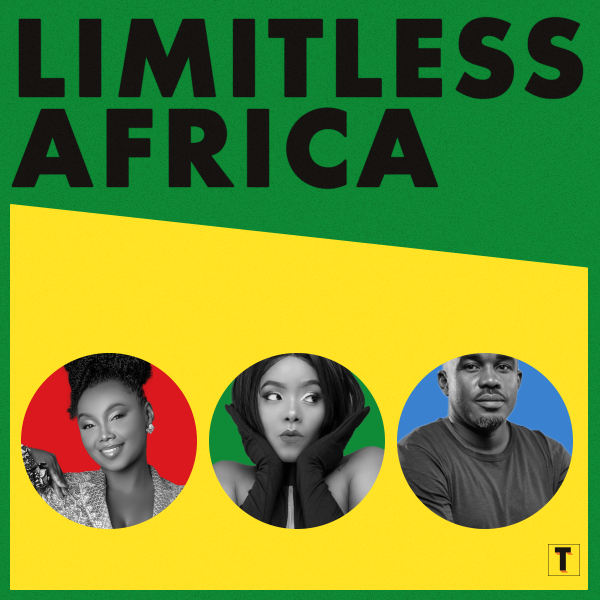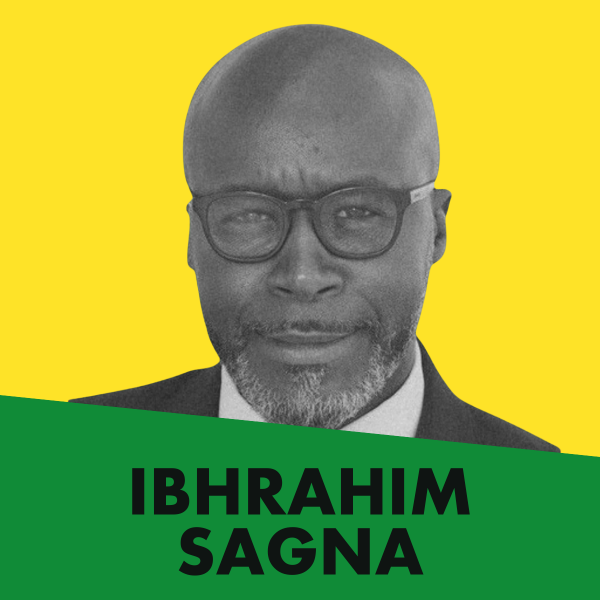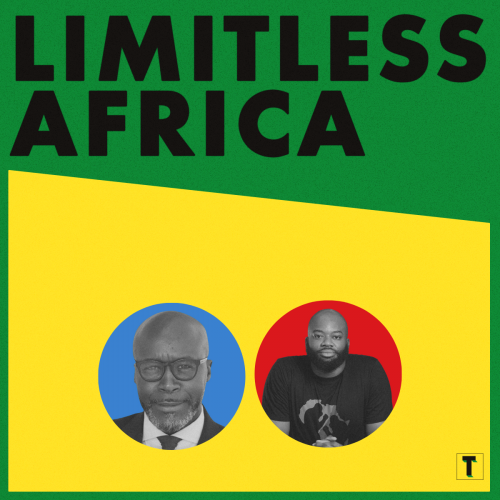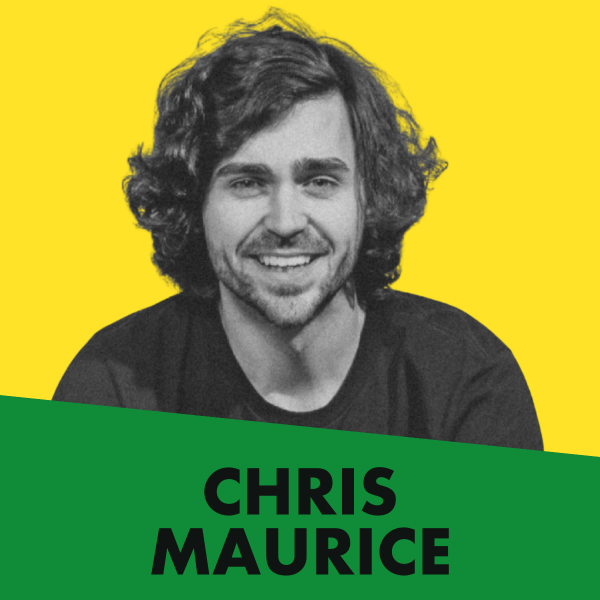Can Kenyan film go global?
With guests Idah Alisha, Kate Kamau, Reuben Odanga

Episode notes
Kenyan film is set to go global. Actresses Kate Kamau and Idah Alisha, plus film director Reuben Odanaga explain how they’re flying the flag for the Kenyan film industry.
Transcript
Can Kenyan film go global?
In this episode we’re talking Kenyan creativity
“And I, at one point, I walked up to the producer, I was like, I know we’re struggling with scripts. I think I can write. She was like, You sure? Well, show me what you got”
“I think this is a very exciting time for Kenyan film and the world better watch out.”
“Being on these global stages and me being able to lobby for resources for training is very, very important for me. It’s not just a trip. I have a vision.�...
Can Kenyan film go global?
In this episode we’re talking Kenyan creativity
“And I, at one point, I walked up to the producer, I was like, I know we’re struggling with scripts. I think I can write. She was like, You sure? Well, show me what you got”
“I think this is a very exciting time for Kenyan film and the world better watch out.”
“Being on these global stages and me being able to lobby for resources for training is very, very important for me. It’s not just a trip. I have a vision.”
Kenya has long been a hotbed of creativity but now it’s stepping up on the global stage. Think Oscar winning actress Lupita Nyong’o – she starred in BlackPanther and Star Wars.
And on home turf the creative industries are very important too. They contribute 5% to the national GDP. So in this episode of Limitless Africa, I wanted to celebrate some of the homegrown talent flying the flag for the Kenyan film industry.
Kate Kamau is a household name in Kenya. She’s an award winning actress. Her movie Nafsi is currently streaming on Netflix. She was invited as part of President William Ruto state visit to the White House, and that’s where I met her. That’s a long way for a village girl from the Rift Valley. Here’s our conversation. We wanted to start by your childhood, and we wanted you to maybe tell us about how you grew up.
Kate:
So I grew up in the countryside, we would say I’m a typical village girl Rift Valley, located in eastern Kenya.
Claude: You did not grow up in Nairobi.
Kate: No, I did not. Okay, so I’m a typical village girl who moved to the city I grew up in. My grandmother, my mom had me at a young age. She was in school, so my grandmother raised me.
Claude:
And how did you from school decide to become an actress?
Kate: Well, to be honest, I didn’t know what an actress is, because we did not own a TV set really. The first time we owned one, I was 10 years old, so, but I was very active in church, doing poems as kids in church. So I think I could tell there’s something different. I have something different in me from a young age, but I didn’t, I could not define what it was.
Claude:
But now you are a central player in the Kenyan film industry. How did you even enter the industry?
Kate:
Well, from high school, like I said, I excelled in drama. And then my cousin got a break on a TV show, and I remember her telling me, I know this is your thing. I hope you do get a chance. And I went for auditions. Actually, I did not audition. There was a part, an extra part, and they wanted someone to dance. I can dance. Oh, I could dance very well.
Claude:
You could dance and not anymore?!
Kate
Age! Claude! Age! [laughs] So I went into the show as an extra, and the producer, and the script writer, just spotted me, and they were like, We want to give you some lines. And then it was lines, and then later, more episodes, and then later, I was the main, almost the main character, of the show.
Claude:
Wow. And you did not expect this to happen so quickly.
Kate:
I did not expect that to happen so quickly. I was a teen mom, then, I was going through depression. So it was quite a blessing.
Claude:
Wow, a teen mom going through depression, yes, and becoming an actress in a top rated TV show, but now you are also in a hit Netflix show called Nafsi. Do you want to tell us about that and how that came to be?
Kate:
It’s a story about surrogacy, which is a very controversial subject in Africa. So the story was very relevant to, you know, in terms of educating the masses on what surrogacy is and and also, just like pushing for laws to have proper laws on surrogacy,
Claude:
Is that a topic that you personally care about as well?
Kate:
Well, to be honest, I didn’t also understand much. It took a film for me to like get deep into it and to understand what surrogacy means and what people go through in the process.
Claude:
Why do you think that people related to Nafsi particularly?
Kate:
I feel like it was an authentic story. The scriptwriter, Reuben Odanga, really went deep, and he would the research operation before the filming, where we got into it and we were able to tell it authentically.
Claude:
Right, yeah. And so what is your vision for the creative industries in Africa, and the role that you can play in expanding, I guess the power and influence of Africans in the creative industries?
Kate:
I think for me, I’m very passionate about women, and advancing the Kenyan female voice in the global film spectrum. For me it’s very, very important, because I feel like we still lack that representation. We don’t see many directors, women as directors, script writers, you know, behind the scenes, and just, it’s because sometimes it’s just lack of information.
People in my country only think of film and TV as being in front of the camera, but there’s so many other job opportunities behind the camera. For me, my dream is to – I’m switching into producing – and that’s why being on these global stages and me being able to lobby for resources, for training, you know, for producing, for creating employment back home is very, very important for me. It’s not just a trip, I have a vision for my country.
Claude:
Idah Alisha is another Kenyan actress who was on the state visit. She stars in click, click, Bang that’s streaming on Netflix now. She starred with Kate in mother in law. Like Kate, she started off as an extra, but soon progressed to bigger and better things, including script writing for TV. Here’s our conversation. Idah Aisha, it’s so great to have you on our Africa podcast.
Idah:
Thanks for having me. It’s an honour.
Claude:
Well, one of the reasons we wanted to talk with you is because you had actually worked with Kate Kamau on a TV series back in the day. Tell us about that and how that came to be.
Idah:
Okay, so that’s actually my best friend. We met at work, and that was the show that you were talking about. The show was called Mother in law, yes, and I showed up and I auditioned. And Kate had a big stay on that show. She had never met me before, but because I was acting with her, we did a scene together, and she told the producer, oh yeah, that’s the one. And my part was supposed to be an extra. But I killed it. And the producer was like, You know what? Let’s make her permanent. The role was manipulated easily, so they made sure that I was a main cast instead of just an extra. So, yeah, that’s how I got my first show on TV.
Claude:
So was that a good experience for you, being on that show?
Idah:
it was a wonderful experience.
Claude:Why?
Idah:
First of all, I think because this was not just a cast. We were not just co workers. Our producer was female. So she ran this show as if it was her own household. There was no beef, there was no favouritism. Everybody was treated equally. So it felt like a very intimate family relationship, more than it was just a working relationship.
So that kind of helped me build even my brand as a person, understanding the things that matter, right? The respect of work and the respect of your colleagues, which, you know, I mean, I know it’s there in other shows, but in this one, it was almost instilled in you once you joined the cast.
Claude:
when you started out as an extra and then were identified as somebody who had a lot of potential and talent and actually became a regular on the TV show, did you also think that you might be able to play a bigger role in their production?
Idah:
Generally speaking, no. At that point, I was just excited to get a job, you know, I thought I was coming in for an extra role. They liked me enough and decided I’ll stay as a main cast, well, like, yeah, part of the main cast.
I didn’t foresee a big opportunity there, but I ended up starting writing, scripting for the show, right? It just happened that the writers that we had at the time were falling off and burn out. You know, we had now just one writer writing for the show. And at one point, I walked up to the producer, I was like, I know we’re struggling with scripts. I’ve been on this show long enough I think I can write. She was like, You sure? Well, show me what you got.
And so I wrote one script. It had a part two, but I didn’t even find it important to finish part two because it was a trial script. I didn’t know if she was gonna like it. She did. She was like, okay, Ida, we’re shooting this on Thursday, where’s part two in the students history.
Claude
All right. Thank you so much Idah,
Idah:
Yeah, thanks for having me.
Claude:
And finally, let’s hear from Ruben Odanga, the director of the film nafsi. He’s a talented filmmaker and the founder of voltan Productions limited. Here’s our conversation.
Reuben Odanga, welcome to Limitless Africa.
Reuben:
Thank you. Thank you for having me. I’m a filmmaker based in Nairobi, Kenya. My aspiration is to create local content that resonates with a lot of Kenyans and East Africans, and local content that still travels to the rest of the world, and in doing so, I also hope to create a bigger space for creatives, where we can create employment for them and also be able to mentor. Mentoring is something that we do. Keep mentoring the upcoming creative so that we can be able to make a sustainable film and creative and artistic industry.
Claude:
Well, one of the reasons we wanted to talk to you was because we wanted to hear about Nafsi. I mean, I see posters behind you right now. I mean, our listeners cannot see this, but I can see it. I see NEERA. I see Selena, all these other films and, I guess, TV series that you’ve been involved with, but one that I can see now also is Nafsi. So what is Nafsi and why is it so popular?
Reuben:
Nafsi was very popular within this region and also within the platform, because I think it was a story that resonated very well with the Kenyan audience, the Kenyan middle class audience, and also it was a mirror of who we are as Kenyans. For once, I think after a very long time, Kenyans felt that they’re watching a story with characters that they can quickly relate to.
Claude:
You told us a bit about what you wanted to achieve and your broader aspirations. But with that, we also want to hear about some of the greatest challenges and also opportunities that you see as a filmmaker working in Kenya
Reuben
Today, our challenges has always been two prongs. One is capital and funding. We are almost getting past that, but our biggest challenge has been distribution, because then distribution helps you recoup your capital, and then you’re able to plough in into the next project.
Claude:
So what is your next project in the film industry?
Reuben:
I’m working on several projects. I have a project coming out on Netflix, hopefully this August. It’s, it’s a TV series. It’s called Mo Fire, and this is basically targets the young adults. And then we also have Nafsi 2 in the works that hopefully, we hope to get into production sometime in February or March next year.
Claude:
Are you going to seem to keep the same cast? because I was able to interview Kate Kamau here in the US when she came on the state visit.
Reuben:
yeah, for sure. I mean, we are keeping the same cast. Nafsi was more, more of like an impact film. You know, the kind of films that directors like Ava DuVernay work on.
So I want to continue with the story and explore slightly some of those themes that we started to explore them slightly deeper and hopefully find a meaning, a conclusion on some of those topics. So for sure, working with Kate, and we’re working with Mumbi Minai, and we excited about what’s this about to come.
Claude:
You mentioned Ava DuVernay, and that got me thinking that you might be looking at collaborating with the United States or Hollywood or Americans. Is that something you think about?
Reuben:
We currently as a company and as an individual, we are looking west Africa. We’re collaborating some of our friends. Some things I can’t mention then for sure, we are talking to other directors. I’ve been able to visit Kunle Afolayan in his set when he’s shooting is Aníkúlápó Rise of the Spectre. We’re also talking to some of our friends in South Africa. So we’re also at that stage where we’re really looking for collaborative projects and spaces to be able to create more local content that can still traverse the world.
Speaker 1 14:02
that’s wonderful. I actually interviewed Kunle a few weeks ago, and he he talked about his Aníkúlápó project as well. So it’s funny that you guys are already in contact and thinking of collaborating. Well, we really want to wish you the best. Any final thoughts you want to share with our listeners?
Reuben:
I think this is a very exciting time for the Kenyan film industry and the world better watch out.
Claude:
Beautiful wishing you the best. It was a real pleasure speaking to you, Reuben
Thanks to all our guests for offering a glimpse into the growing creative sector in Kenya, for talking about the good and the bad. They have succeeded through hard work and talent but also because of their solidarity and support for one another. I can’t wait to see what they get up to next. You have been listening to limitless.
Listen next
"Teaming up with Hollywood would expand the value" - How to export African wrestling to the world
With guests: Ibrahim Sagna
LISTEN NOW 32 min
"I got exactly what I wanted, which was my DMs full of Nigerian men"
With guests: Chris Maurice
LISTEN NOW 37 min








